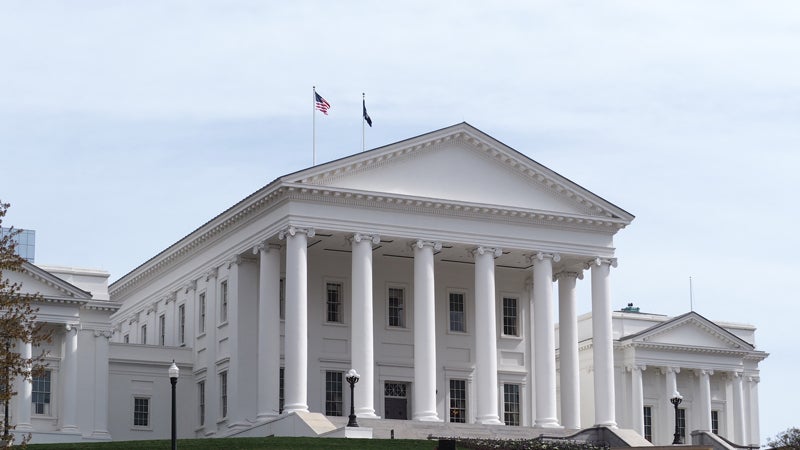Lawmakers uphold school sales tax veto
Published 3:40 pm Thursday, April 18, 2024

- Virginia State Capitol (File photo)
Virginia’s General Assembly on April 17 upheld Gov. Glenn Youngkin’s veto of legislation that would have authorized any city or county to raise its sales tax 1% by voter referendum to fund school construction.
Only nine Virginia localities – Charlotte, Gloucester, Halifax, Henry, Mecklenburg, Northampton, Patrick and Pittsylvania counties and the city of Danville – are afforded the option under current state law. Isle of Wight County has been lobbying for the referendum option for the past three years as a possible means of paying back more than $30 million it borrowed in 2020 and 2021 to replace the circa-1961 Hardy Elementary with a new, larger Hardy that opened in 2023, and to fund the estimated $71 million cost of replacing another 1960s-era school, Westside Elementary.
Two identical bills – HB 805 by Del. Sam Rasoul, D-Roanoke, and SB 14 by Sen. Jeremy McPike, D-Prince William – passed the House of Delegates and state Senate in February with the requisite two-thirds bipartisan majorities that could have handed Youngkin his first-ever veto override, but they failed to garner the same support when each chamber reconvened on April 17.
Each would have abolished the list of authorized localities and expanded the option to all cities and counties.
According to G. Paul Nardo, clerk of the House, no delegate contested the veto of HB 805, thereby sustaining Youngkin’s veto without an override vote.
The Senate’s 25-15 override vote on SB 14 fell two short of the 27 needed to pass. Sens. Todd Pillion, R-Abingdon, and J.D. “Danny” Diggs, R-Yorktown, who’d each supported SB 14 in February, this time voted no.
Sens. Lashrecse Aird, D-Petersburg, who’s legislative district includes Surry County, and Sen. Emily Jordan, R-Isle of Wight, each maintained their support for SB 14 during the April 17 vote.
Youngkin’s office, in an April 9 statement, said he’d vetoed the bill over concerns that the statewide impact of city- and county-level 1% sales tax surcharges “could result in a nearly $1.5 billion a year tax increase on Virginians.”
Virginia’s statewide sales tax rate currently stands at 5.3% though Williamsburg, James City County and York County already pay a combined 7% state and regional sales tax to promote tourism. The General Assembly, in 2013, authorized an additional 0.7% surcharge on top of the 5.3% statewide rate for Northern Virginia and Hampton Roads to create a 6% rate to fund transportation projects. Were Virginia to allow an additional 1% surcharge for school construction, “Some localities would have a combined sales tax rate of 8%, with no additional offsets, such as reduced income tax or property tax,” Youngkin’s statement asserted.
“The Commonwealth should pursue a tax policy that unleashes economic development and prioritizes job and wage growth through innovative reforms,” Youngkin said. “These reforms must allow hardworking Virginians to keep more of their money, not less; any proposal that increases the cost of living and the cost of business is not a policy we should pursue.”
Isle of Wight County Supervisor William McCarty, who on April 9 expressed disappointment with Youngkin’s veto, said the sales tax option had been the county’s top legislative priority for years.
Youngkin’s veto, “without proposing an alternative solution only exacerbates the urgent need to address the school infrastructure needs of Isle of Wight County and other communities across the Commonwealth,” McCarty had said.
HB 805 and SB 14 each made it farther into the legislative process than similar bills in prior years.
In 2021 and 2022, former Sen. Tommy Norment, R-James City, had sponsored similar legislation that would have added Isle of Wight to the list of authorized counties without abolishing the list altogether. Former Del. Sally Hudson, D-Charlottesville, in 2022, and former Sen. Jennifer McClellan, D-Richmond, in 2023, had sponsored bills to abolish the list, but all had died during “crossover,” when each chamber votes on the other’s approved bills, before any could make it to the governor.





